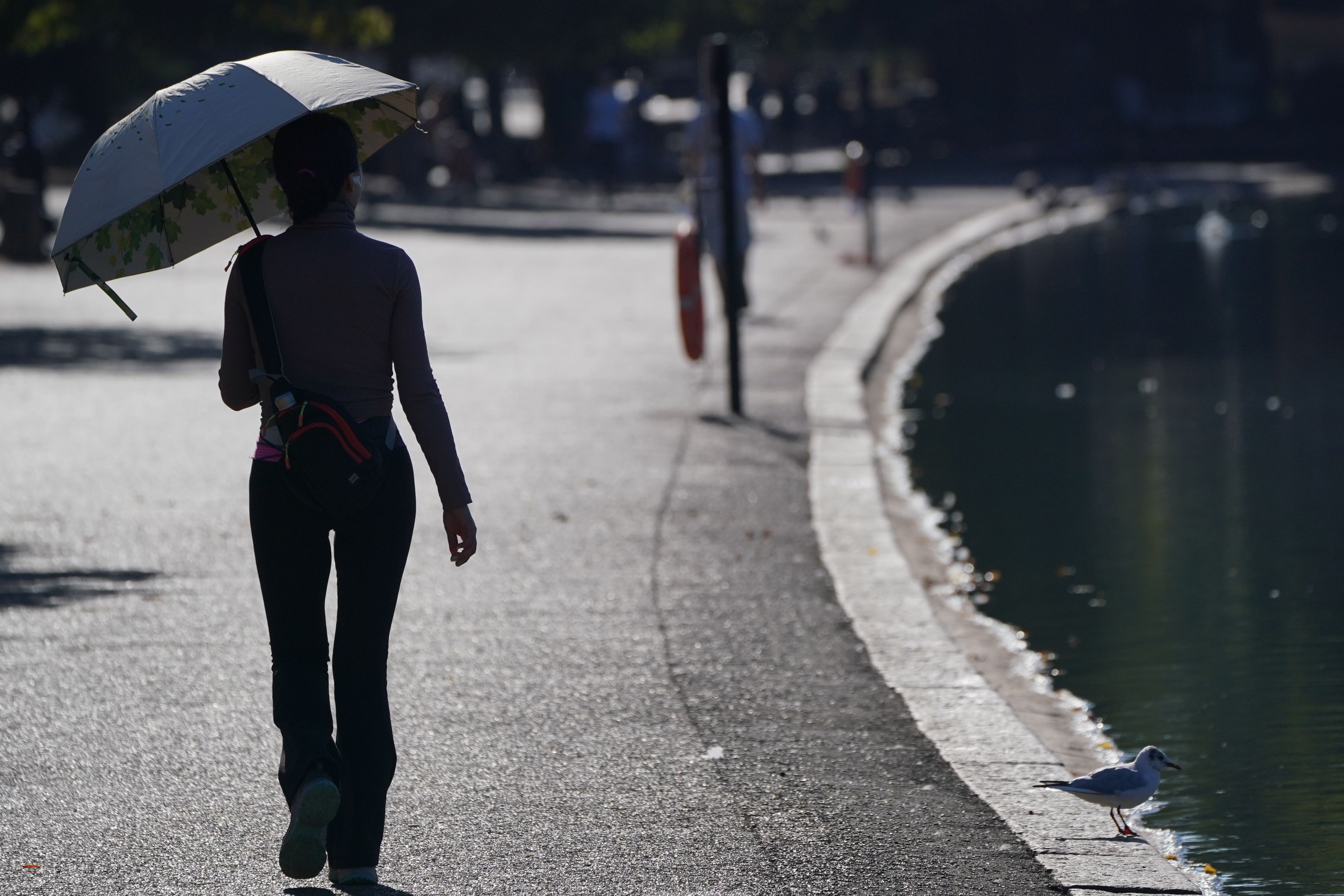More than 50,000 deaths from heat and 200,000 from cold since 1988 – figures
The Office for National Statistics said the greatest risk to life was when temperatures exceeded 25C or fell below minus 5C.

Your support helps us to tell the story
From reproductive rights to climate change to Big Tech, The Independent is on the ground when the story is developing. Whether it's investigating the financials of Elon Musk's pro-Trump PAC or producing our latest documentary, 'The A Word', which shines a light on the American women fighting for reproductive rights, we know how important it is to parse out the facts from the messaging.
At such a critical moment in US history, we need reporters on the ground. Your donation allows us to keep sending journalists to speak to both sides of the story.
The Independent is trusted by Americans across the entire political spectrum. And unlike many other quality news outlets, we choose not to lock Americans out of our reporting and analysis with paywalls. We believe quality journalism should be available to everyone, paid for by those who can afford it.
Your support makes all the difference.There have been more than 50,000 heat-related deaths and more than 200,000 from cold since 1988 in England and Wales, according to official figures.
While England historically has had far more deaths from cold, the Office for National Statistics (ONS) said heat-related deaths appeared to have increased in recent years.
There were more than 4,500 in 2022, more than any other year in the analysis.
Last year was the UK’s hottest on records which date back to the late-19th century, with scientists warning that 40C summers will become more common in future as the climate heats up.
Researchers from Oxford University recently published a report identifying UK buildings as needing to be retrofitted to protect people from extreme heat.
Campaigners, MPs and charities are also urging the Government to fully insulate homes to protect people in winter and help them save on energy costs.
For large cities, the risk of overheating is greater due to what is called the “heat island effect” and they can be several degrees higher than the surrounding countryside.
Poorer older people are proportionally more likely to live in the most energy inefficient homes and are among the most likely to suffer a deterioration in their health during extreme weather
Buildings, roads and pavements absorb the sun’s energy and expel it, particularly throughout the night, making it difficult for people to cool down.
The ONS figures show that the risk of dying triples in London when temperatures exceed 29C, compared to when they are between 9C and 22C.
All regions of England Wales showed an increased risk of death above 22C, with those aged over 65 most vulnerable.
The greatest risk is when temperatures exceed 25C or fall below minus 5.
The ONS compiled its figures based on information from the Centre for Environmental Data Analysis and created a new method to understand how temperature affects risk of death.
Their analysis also showed a sharp rise in deaths during the winter of 2010/11 when the UK saw unusually cold temperatures plunging south from the Arctic.
Our housing is the oldest, and among the poorest quality in Western Europe and is not fit for purpose to face the challenges of more extreme temperatures and weather
Holly Holder, deputy director for homes at the Centre for Ageing Better, said: “These new stats showing the growing health threat from rising temperatures confirm that it would be a grave mistake to slow down or roll back net-zero policies.
“Too many people live in homes that are too cold in winter and too warm in summer and feel helpless about making the improvements their property needs.
“Poorer older people are proportionally more likely to live in the most energy inefficient homes and are among the most likely to suffer a deterioration in their health during extreme weather.
“Climate change isn’t just something that is happening in the Antarctic or in very hot countries, it is impacting lives, and taking lives, here in the UK.
“Our housing is the oldest, and among the poorest quality in Western Europe and is not fit for purpose to face the challenges of more extreme temperatures and weather.”